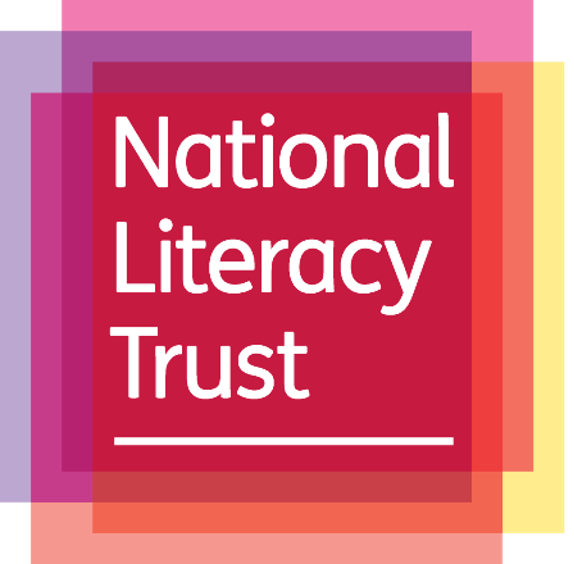School’s Project with the National Literacy Trust, producing free resources designed to be used by schools across the UK
The Marks Family Charitable Trust supports Holocaust Memorial Day, with the National Literacy Trust
On Wednesday 27 January 2021, The Marks Family Charitable Trust and the National Literacy Trust teamed up with award-winning author Tom Palmer, to help schools commemorate Holocaust Memorial Day.
Holocaust Memorial Day 2021
The National Literacy Trust has produced free resources designed to be used in schools and at home throughout the week leading up to Holocaust Memorial Day. These were inspired by the remarkable stories of child Holocaust survivors welcomed into the Lakeland community in 1945. Author Tom Palmer wrote The Question, a story in five instalments. Over the course of a week, pupils can read each part of the story. These are accompanied by worksheets and a video from Tom offering advice and guidance on writing their own short story. Teachers were also supported with a guide full of ideas and sources, to deliver the project and help their pupils with their writing. The week ended with a video assembly presentation and a Facebook Live Q&A event with Tom and Holocaust survivor Mala Tribich MBE.
All schools who took part in the project had the chance to win a set of six signed copies of Tom Palmer's book After the War, thanks to publishers Barrington Stoke, as part of a prize draw.
The project’s aims:
Improve young people’s attitudes to writing
Improve young people’s confidence in their writing ability about emotive subjects, as well as language and learning skills
Enable teachers to be more confident to discuss the Holocaust and why people seek refuge in other countries e.g., natural disasters, wars and fear of persecution
Increase young people’s awareness of the Holocaust and who it impacted
“The idea behind The Question is to offer children everywhere the chance to see what it would be like to have a Holocaust survivor visit their school, hopefully help them understand what the Holocaust was and to think about the purpose of Holocaust Memorial Day and about all victims of genocide, past and present.”
Tom Palmer
How the week went…
Over the week, resources were used by around 1,000 schools, reaching 30,000 pupils.
Through taking part in the project:
71% of teachers said the resources were excellent or good (29%), describing them as “brilliant”, “engaging”, “insightful”, “wonderful” and “inspirational”
1 in 5 teachers felt pupils enjoyed writing more and were more confident in their writing after using the resources
Nearly all teachers felt that having used these resources, they were either very confident (70%) or quite confident (27%) about discussing the Holocaust with their pupils
92% of teachers felt that their pupils were more aware of the Holocaust and nearly half (46%) of teachers felt that pupils were more aware of the current refugee crisis.
Some key highlights include:
Practitioners felt that that the structured support for writing was excellent for enabling writers, including those with lower ability, to produce content.
The live event was incredibly popular and moving; being joined by Mala Tribich was powerful and has highlighted a need to facilitate more schools to experience such events.
The theme itself enabled pupils to bring perspective and context to the current refugee crisis; ‘meeting’ Mala brought truth and realism to the fore, and inspired students with their writing and attitudes.
One teacher highlighted that there was a “general feeling of kindness about the school on the day and on days following”.
Testimonials
“They were so inspired by the project you presented. I had comments such as 'I am so excited to write this now' and 'I didn't know Tom Palmer was such a good teacher'… They were so engaged with both their writing and their reading, which as you can imagine is something quite difficult to achieve with remote learning, so thank you. Some of the children I teach are still 9 years old. They have managed to cope with the demands of exploring the Holocaust, understanding and empathising with its victims and have developed the understanding to challenge any prejudice, which they might come across. I am so proud of them all.”
“I just wanted to say a huge thank you for the resources that have been available this week for Holocaust Memorial Day. Both my class at home and in school have really enjoyed using them and they have promoted excellent writing and discussions. The live Q&A today was also very moving and interesting.”
An introduction to the work of the National Literacy Trust
The National Literacy Trust is dedicated to improving the reading, writing, speaking and listening skills of those who need it most, giving them the best possible chance of success in school, work and life. We run Literacy Hubs and campaigns in communities where low levels of literacy and social mobility are seriously impacting people’s lives. We support schools and early years settings to deliver outstanding literacy provision, and we campaign to make literacy a priority for politicians, businesses and parents. Our research and analysis make us the leading authority on literacy and drive our interventions. Literacy is a vital element of action against poverty and our work changes life stories.
Further links
Holocaust Memorial Day digital resources and story from Tom Palmer
website literacytrust.org.uk
twitter @Literacy_Trust
facebook nationalliteracytrust
© National Literacy Trust 2021

![After the War Shareable Graphic_Tim Robertson quote[2].jpg](https://images.squarespace-cdn.com/content/v1/5e260fc81324310e95f2a712/1614774322156-QQ0ZS6U7539HAZIBOLS9/After+the+War+Shareable+Graphic_Tim+Robertson+quote%5B2%5D.jpg)

![child writing stock image2[2].jpeg](https://images.squarespace-cdn.com/content/v1/5e260fc81324310e95f2a712/1614774437564-S2GM5S9MVW6NXY3EM35M/child+writing+stock+image2%5B2%5D.jpeg)
